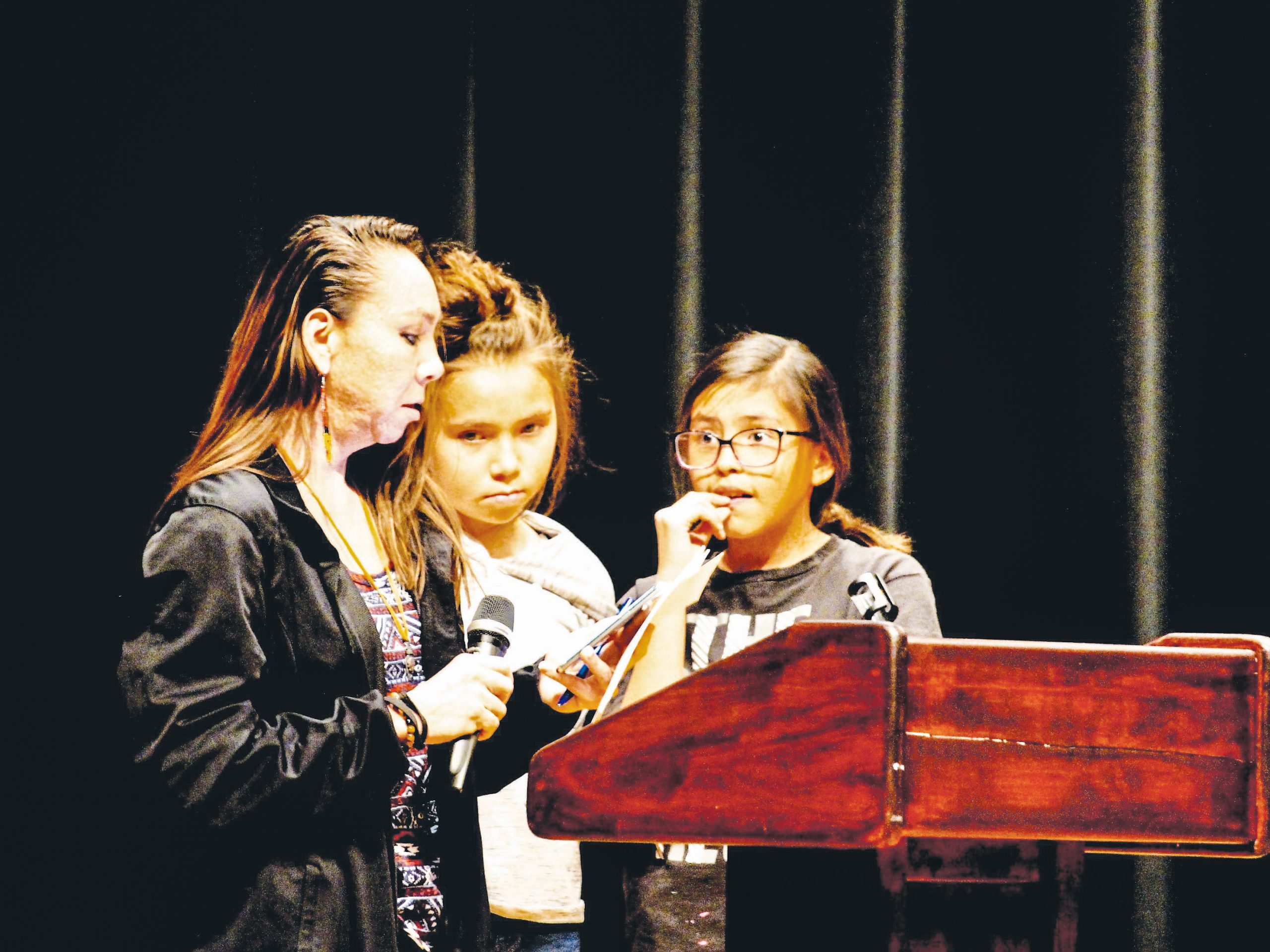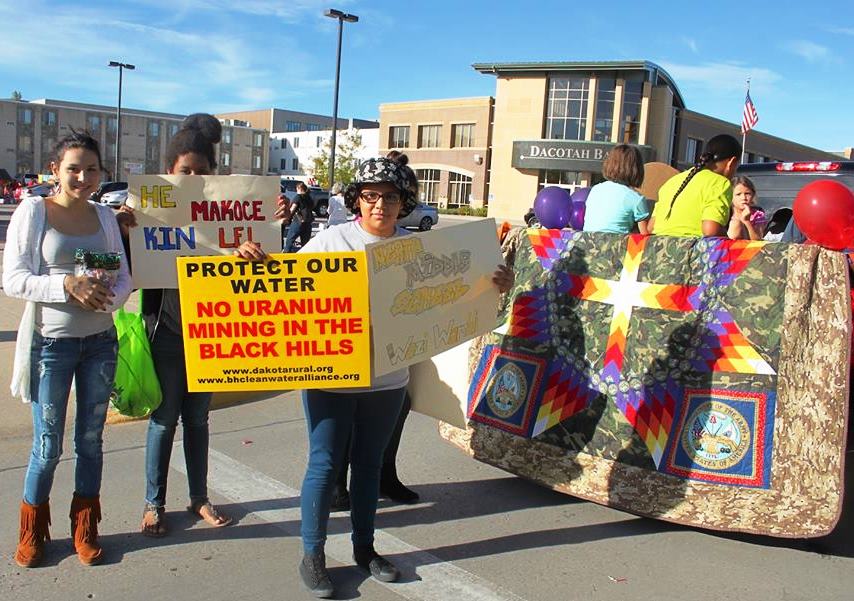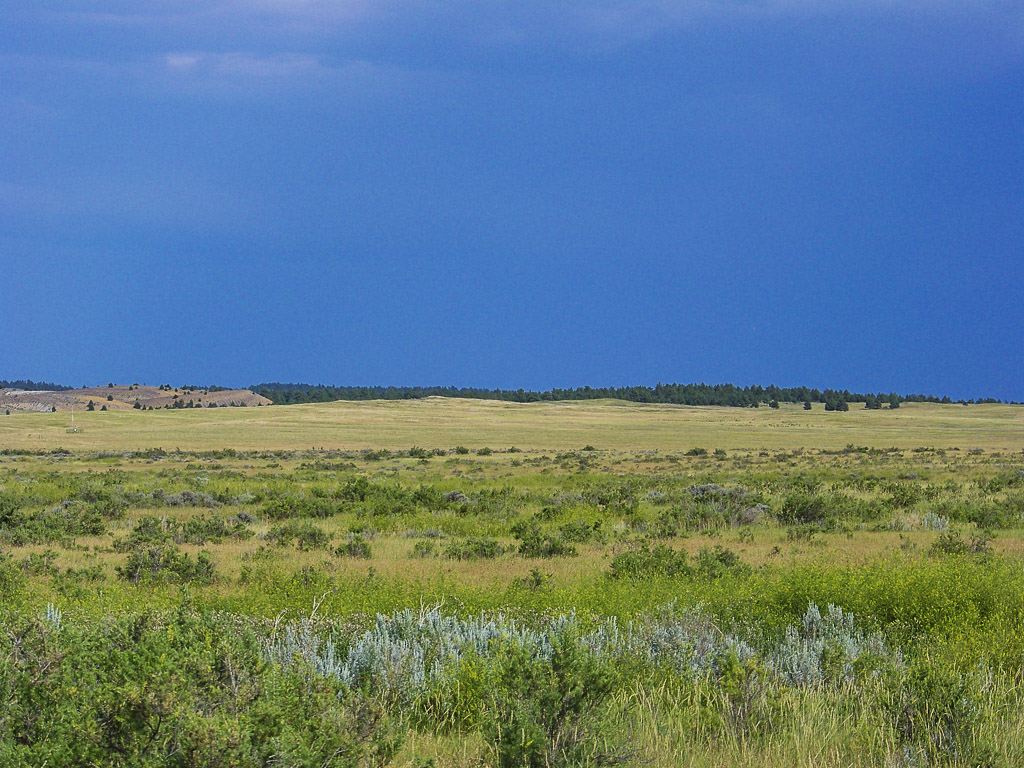Indianz.Com > News > Native Sun News Today: Oglala Sioux Tribe slams approval of uranium mining project

EPA draws fire from OST
Wednesday, December 9, 2020
Native Sun News Today Health & Environment Editor
PINE RIDGE, South Dakota – The Environmental Protection Agency broke two federal laws on November 24 by permitting underground water use for uranium mining and waste disposal at the proposed Dewey Burdock site in the southern Black Hills, according to Oglala Sioux Tribe Water Resources Department Administrator Reno Red Cloud Sr.
“The OST and environmental groups will be meeting next week and working on a response to this action,” he told journalists at a news conference following the EPA announcement.
“We are aware of the EPA failure to comply with the NEPA-NHPA regulations for consultation. We will respond soon,” he said at the online conference.
The Oglala Sioux Tribe and numerous other intervenors already have taken the Nuclear Regulatory Commission and private foreign investors to federal court and administrative appeals boards over more than 10 years for violating the bedrock NEPA, or National Environmental Protection Act, and NHPA, or National Historic Preservation Act in pursuit of Dewey Burdock permits.


NATIVE SUN NEWS TODAY
Support Native media!
Read the rest of the story on Native Sun News Today: EPA draws fire from OST
Contact Talli Nauman at tallinauman@gmail.com
Note: Copyright permission Native Sun News Today
Search
Filed Under
Tags
More Headlines
AUDIO: American Indian & Alaska Native Public Witness Hearing: Day 2, Morning Session
Native America Calling: The graduation milestone
Native America Calling: The imbalance of parole and probation
Native America Calling:Drive to dismantle college inclusion adds another barrier for Native students
NAFOA: 5 Things You Need to Know this Week
Chuck Hoskin: Cherokee Nation continues to offer opportunities to all
Native America Calling: Illinois’ first Native reservation
AUDIO: The Alyce Spotted Bear and Walter Soboleff Commission’s Report on Native Children
VIDEO: The Alyce Spotted Bear and Walter Soboleff Commission’s Report on Native Children
Native America Calling: Charting the future of Native jazz
Native America Calling: Miss Indian World Kassie John
AUDIO: American Indian & Alaska Native Public Witness Hearing: Day 1, Afternoon Session
AUDIO: American Indian & Alaska Native Public Witness Hearing: Day 1, Morning Session
Senate Committee on Indian Affairs hosts discussion on Native children
Native America Calling: Is the sky the limit for tribal sovereignty?
More Headlines
Native America Calling: The graduation milestone
Native America Calling: The imbalance of parole and probation
Native America Calling:Drive to dismantle college inclusion adds another barrier for Native students
NAFOA: 5 Things You Need to Know this Week
Chuck Hoskin: Cherokee Nation continues to offer opportunities to all
Native America Calling: Illinois’ first Native reservation
AUDIO: The Alyce Spotted Bear and Walter Soboleff Commission’s Report on Native Children
VIDEO: The Alyce Spotted Bear and Walter Soboleff Commission’s Report on Native Children
Native America Calling: Charting the future of Native jazz
Native America Calling: Miss Indian World Kassie John
AUDIO: American Indian & Alaska Native Public Witness Hearing: Day 1, Afternoon Session
AUDIO: American Indian & Alaska Native Public Witness Hearing: Day 1, Morning Session
Senate Committee on Indian Affairs hosts discussion on Native children
Native America Calling: Is the sky the limit for tribal sovereignty?
More Headlines
